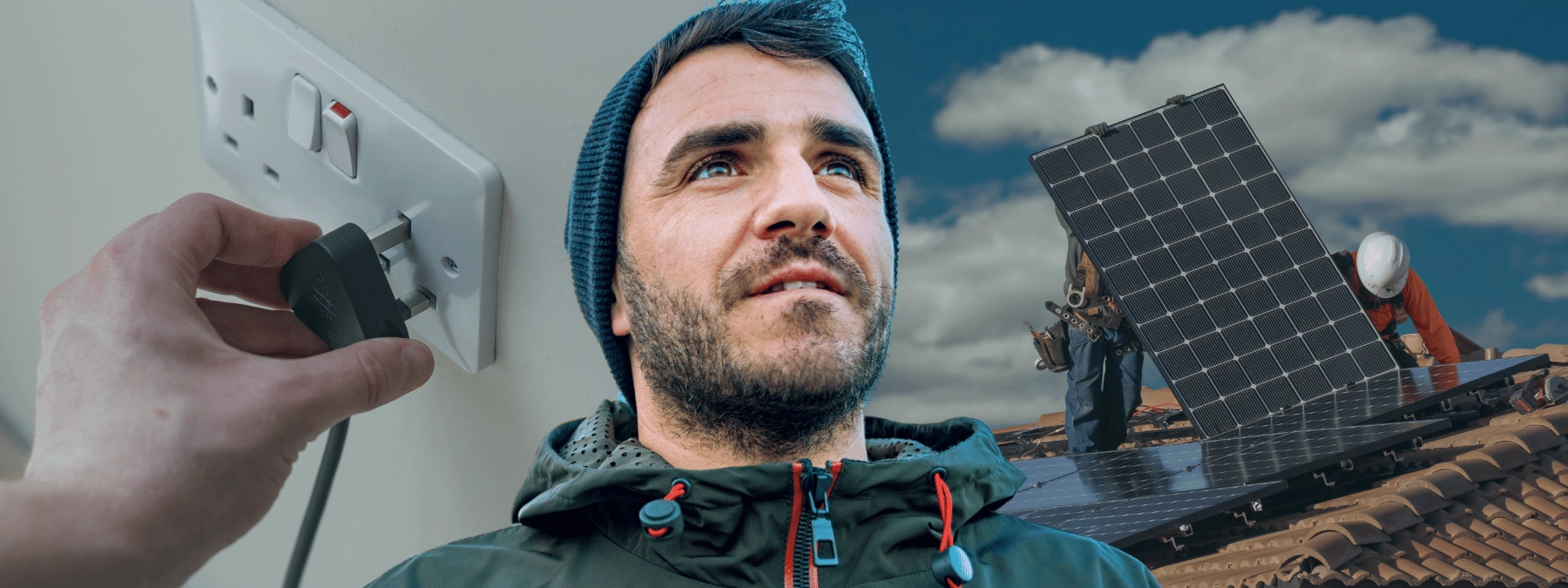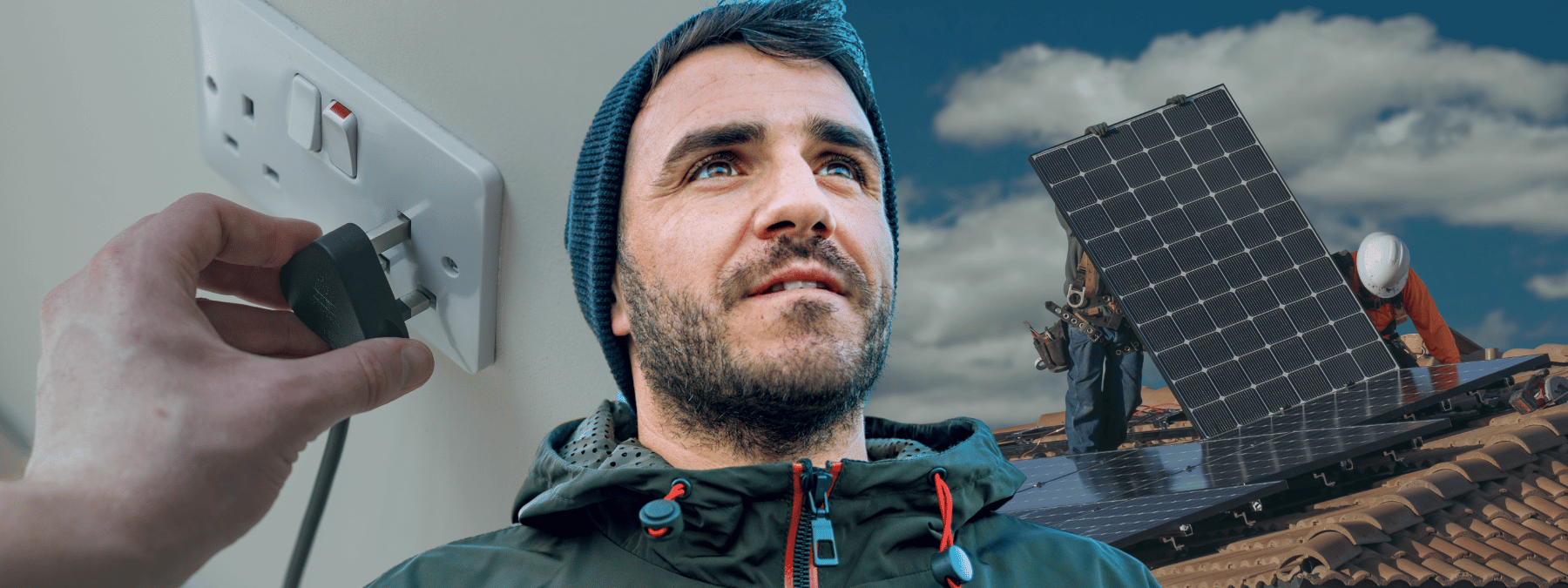
Installing solar panels isn’t only for eco-conscious households or high-consumption manufacturers anymore. More and more small businesses across the UK are wondering whether solar energy could save them money and reduce their reliance on the grid.
But can small businesses really justify the up-front cost of solar? And how do you even begin to work out if it's worth it? This guide breaks it down so you can decide whether solar is a smart move for your company.
Why Go Solar?
There are three big reasons UK business owners typically turn to solar energy:
-
Cost Savings - Solar panels can significantly reduce what you spend on electricity bills, especially if your business only operates during daylight hours.
-
Energy Independence - The less your business relies on the grid, the less it will be impacted by fluctuating energy prices.
-
Sustainability - Customers, investors and partners often prefer working with businesses with sustainable (and transparent) operations.
How Do Solar Panels Work?
Solar panels (sometimes called ‘photovoltaic’ panels) absorb sunlight and convert that energy into electricity. This electricity can power your business premises, from heavy machinery to a kettle.
If your business generates more electricity than it uses, the surplus energy can be stored in batteries or sold back to the grid. Most rates range from 3p to 15p per kWh for this. While it won't make your business rich, it can shave some time off your payback period.
What Will They Cost?
Up-Front Costs
For a small business, installing solar panels could cost anywhere between £16,000 and £70,000, depending on a range of factors including:
-
The size of your roof or land
-
The complexity of the installation process
-
Your level of energy consumption
-
Whether you add battery storage or EV outlets
-
The quality and brand of your panels
-
The labour costs your installer charges
Maintenance Costs
Solar panels generally don’t need much maintenance. You might pay around £100-£300 per year for cleaning, servicing and minor repair work. Panels typically have a good lifecycle at 25-30 years, and the technology which converts solar power into usable electricity may need replacing in 10-15 years.

What Will They Save?
This depends on how much electricity you use during daylight hours and how much energy you can generate from your location.
Here’s an example:
-
You install a 10 kW system costing £12,000-£15,000
-
You use most of the electricity you generate, reducing your annual bill by £2,000-£3,000
-
You sell excess energy to the grid via the Smart Export Guarantee (SEG), earning £100-£300 a year
In this example, you would break even in 5 - 7 years. Your energy generation then becomes free (besides minor maintenance), and your earnings become profitable.
Simple Solar Payback Calculator
Use this basic template to understand whether solar panels make financial sense for your business. You’ll need a few figures on your current energy usage and a quote from a solar system installer. Grab a pen!
|
Input |
Your Estimate |
|
Annual electricity bill (£) |
_ |
|
% of energy solar could replace |
_ |
|
Annual savings estimate (£) |
= bill x % replaced |
|
Installation quote (£) |
_ |
|
Tax savings (£) |
_ |
|
Net cost of system (£) |
= installation - tax savings |
|
Years taken to pay back |
= net costs ÷ annual savings |
If you want a more informed answer, you can expand this calculation process to include battery storage costs, payments from SEG or predicted wholesale price rises. But even this simplified version should give you a solid foundation.
Is Battery Storage Important?
Whether investing in battery storage is worthwhile depends on your setup. If your business mainly runs during daylight hours, you can use solar energy as it's generated, which gives you optimum savings.
If you need power available into the evening or early in the morning, a battery system can store excess energy for use later. While helpful, battery storage can add £3,000 - £8,000 to your total install costs, so weigh this up carefully.
Are Government Incentives Available?
While the UK Government doesn’t offer grants for commercial solar installations like it used to, you can claim ‘capital allowances’ through the Annual Investment Allowance (AIA). This means you can deduct the full cost of the system from your company’s profits before tax.
For example, if your solar panels cost £12,000 to be installed, and you’re a limited company paying 19% Corporation Tax, you could save £2,280 in tax, reducing your actual cost to £9,720.
Renewable Energy Tariffs
Even if solar isn’t right for your business, you can still reduce your carbon footprint by switching to a renewable energy tariff through your business energy provider. These green tariffs aren’t always more expensive either. In fact, some can be cheaper than standard contracts.
Final Considerations
Thanks to lower costs, tax incentives and rising energy bills, solar power is becoming an increasingly attractive proposition for small businesses in the UK. If you have usable roof space or land, operations during daylight hours, and you plan to remain on the same premises, solar energy could pay for itself in five to seven years - and keep saving you money long after.
Even if you're not ready for solar just yet, reviewing your business energy contract and switching to a renewable tariff is a step in the right direction.
Your next steps should be to request a quote from a local installer, compare business energy tariffs that offer renewable options, and speak to your accountant about capital allowances.
Let Us Help Your Business
BusinessComparison can help you compare vital business products and services, securing the best deals and saving precious time. Compare with us today to save time and money.











.jpg)



